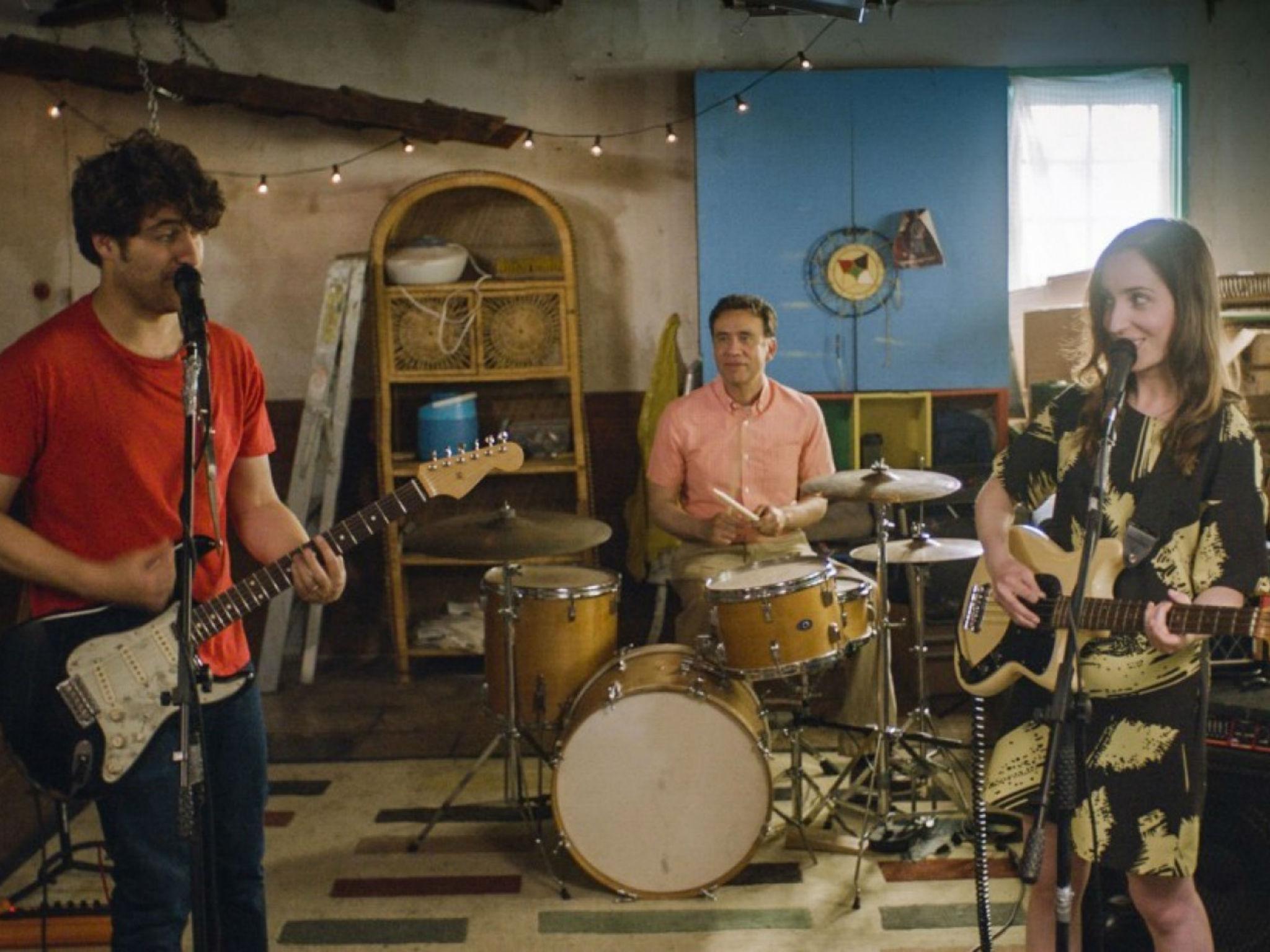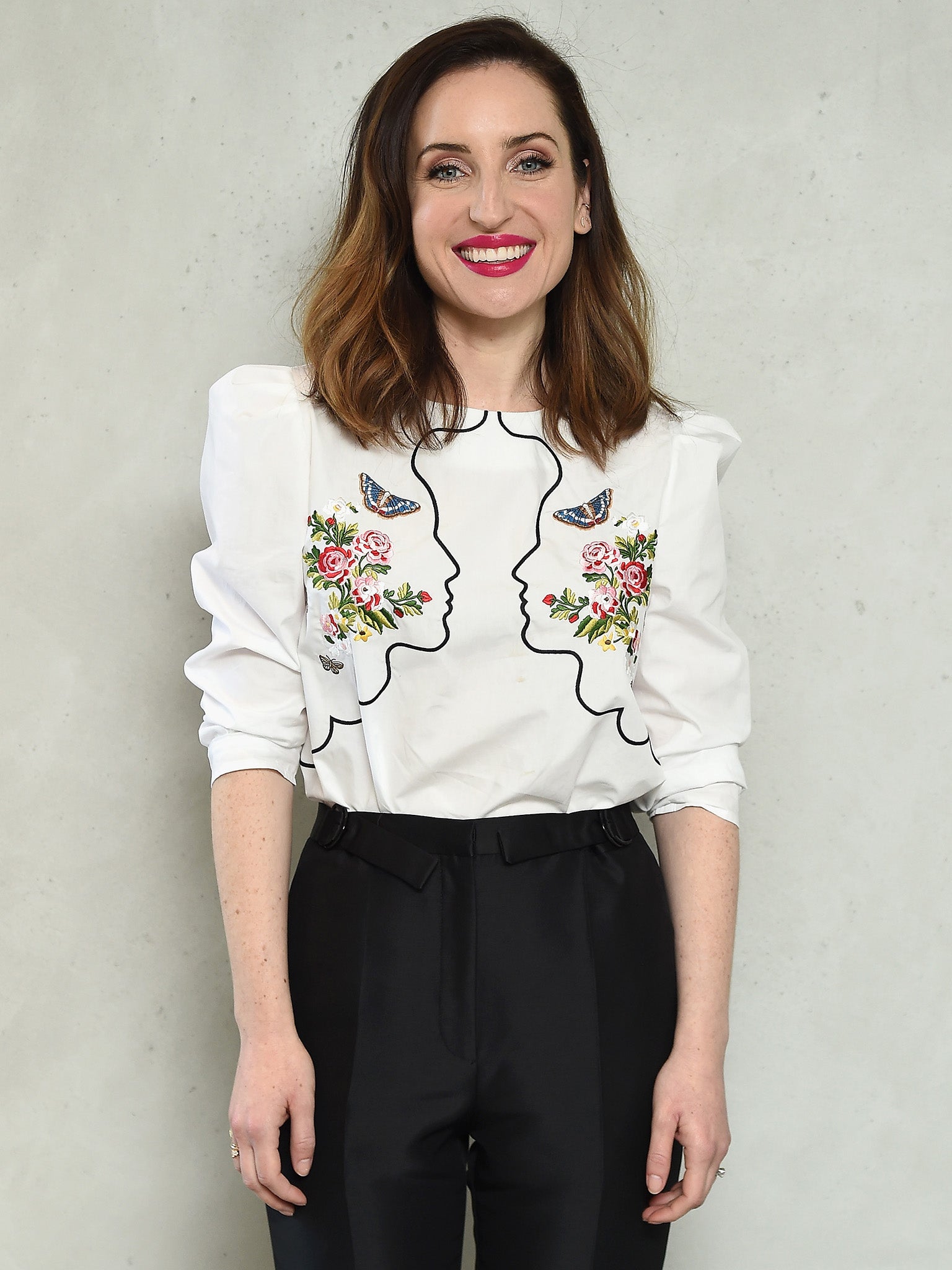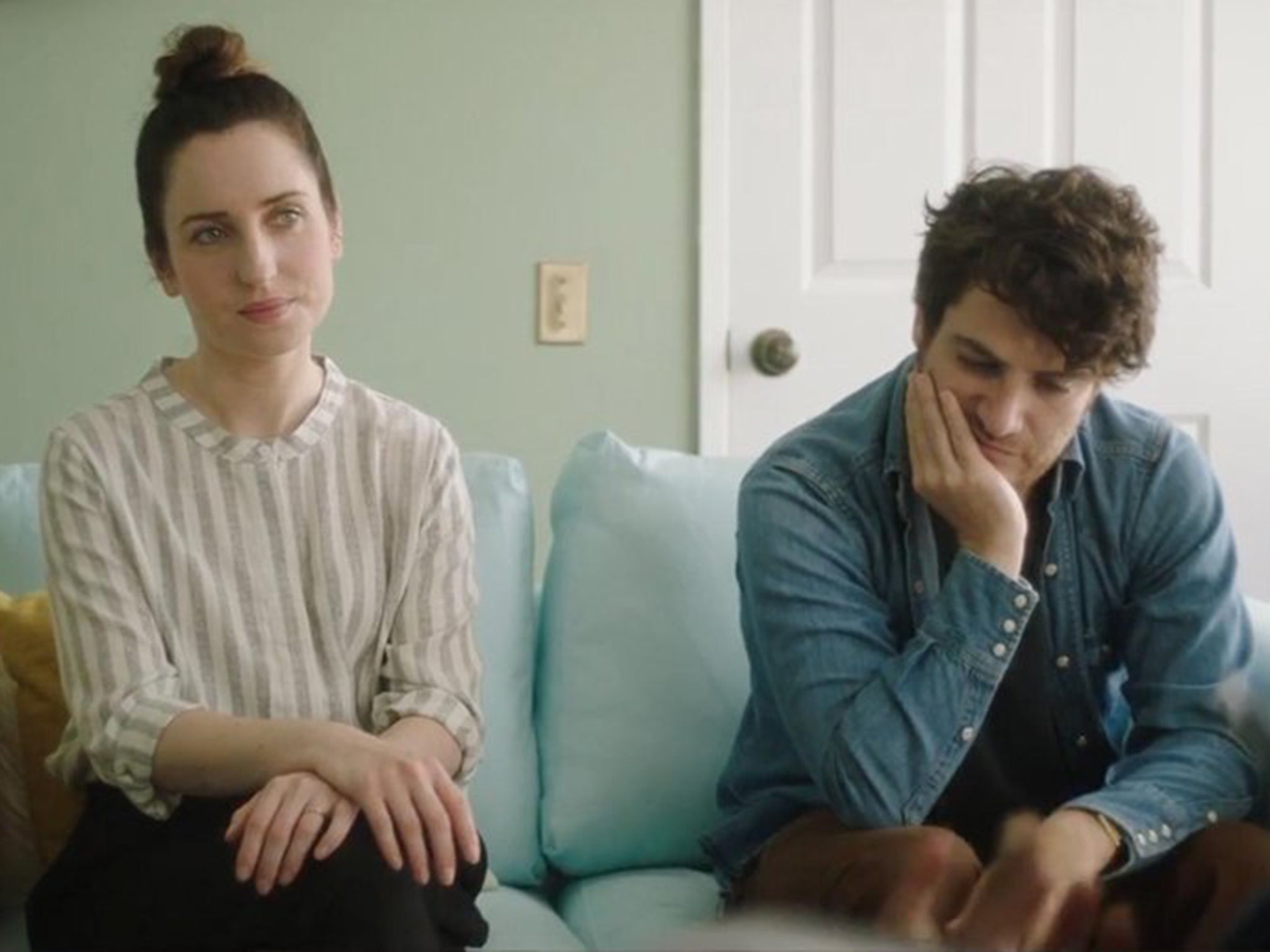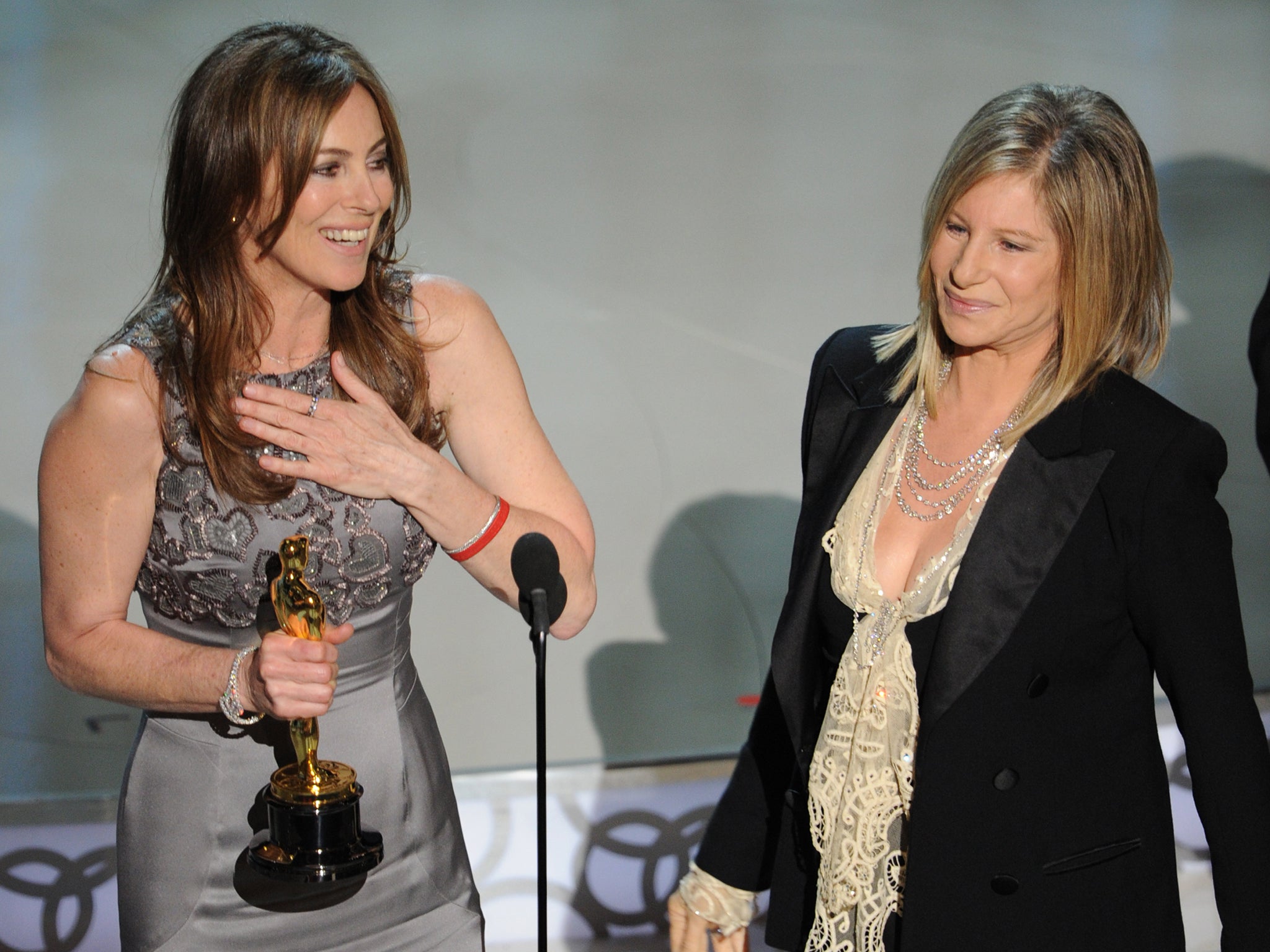Girl power: How a director confronted Hollywood's gender problem by making her crew female
When Zoe Lister-Jones decided to direct her first movie, 'Band Aid', she hired an all-female crew and found some positions were a challenge to fill

Your support helps us to tell the story
From reproductive rights to climate change to Big Tech, The Independent is on the ground when the story is developing. Whether it's investigating the financials of Elon Musk's pro-Trump PAC or producing our latest documentary, 'The A Word', which shines a light on the American women fighting for reproductive rights, we know how important it is to parse out the facts from the messaging.
At such a critical moment in US history, we need reporters on the ground. Your donation allows us to keep sending journalists to speak to both sides of the story.
The Independent is trusted by Americans across the entire political spectrum. And unlike many other quality news outlets, we choose not to lock Americans out of our reporting and analysis with paywalls. We believe quality journalism should be available to everyone, paid for by those who can afford it.
Your support makes all the difference.When it comes to addressing the gender discrepancy in Hollywood, there's been a lot of talk – symposiums, panel discussions, acceptance speeches – but not a lot of action. Men still get hired for jobs, especially behind the camera, much more frequently than women. In 2016, for example, only 17 per cent of directors, writers, producers, executive producers, editors and cinematographers for the top 250 domestic grossing films were women.
So when Zoe Lister-Jones decided to direct her first movie, Band Aid, she embraced her power as the director-producer and focused on results instead of promises. She hired an all-female crew, from the cinematographer to the boom operator to the grip, because, as she put it, "there's something amazing that happens when women are alone together."
It wasn't entirely easy. In certain departments – lighting and electric, for example – some positions were a challenge to fill.
“It's not because there aren't a lot of women who have the skill set," says Lister-Jones. "It was more because even my female department heads were afraid to take a risk on someone who might not have as much experience as her male counterpart."

Ah yes, the familiar Catch-22: Women don't have the experience to get hired, and since they never get hired, they can't get the experience.
"I just knew that I had to push back against those fears," she says. "Because if we weren't going to take the risk then who is?"
There appears to be movement in a more equitable direction. Band Aid hits cinemas in the US just as Patty Jenkins’s Wonder Woman has become the highest grossing debut for a female director ever, with $103m (£81m) domestically.
Band Aid won't make quite that big of a splash. The small-budget Sundance favourite stars Lister-Jones and Adam Pally as a married couple who find a unique solution to their constant fighting: they start a band, along with their neighbour (Fred Armisen), and turn their bickering into songs. (Sample lyric: “Please do not ask me if you've gained weight, especially when we're going out on a date.”) The movie is charming and funny, but also poignant at times, especially when the story delves into the topic of miscarriage – a theme that doesn't pop up much in movies, probably because of the people creating them.

That's one benefit of diversifying the field of those telling the stories we see on screen. We get more authentic portrayals. Television has leapfrogged ahead of movies in this department, resulting in such acclaimed series as Transparent (Jill Soloway), Queen Sugar (Ava DuVernay) and Insecure (Issa Rae). Thanks to a diverse slate of writers and directors, there are more realistic depictions of what it's like to be many different types of people, including a transgender woman and a black millennial. In a recent episode of Fargo, two strangers in a public bathroom go through a ritual familiar to any woman when one asks the other for a tampon. It's a jarring moment precisely because it's so credible for female viewers; of course the episode was written by a woman, Monica Beletsky.

Watch Apple TV+ free for 7 days
New subscribers only. £8.99/mo. after free trial. Plan auto-renews until cancelled

Watch Apple TV+ free for 7 days
New subscribers only. £8.99/mo. after free trial. Plan auto-renews until cancelled
Actress Jessica Chastain made a splash at the Cannes Film Festival last month when she said she was disturbed by the way movies at the festival painted female characters. She didn't recognise any of them from reality.
“I hope that when we include more female storytellers, we will have more of the women I recognise in my day-to-day life,” she said. “Ones that are proactive, have their own agency, don't just react to the men around them. They have their own point of view.”
Does working on a movie where the entire crew is women feel different?

“Yeah,” Band Aid producer Natalia Anderson says with an air of wonder. (She has also collaborated with Lister-Jones on the television series Life in Pieces.) "There's been many times where I've been on sets or in meetings or some form of interfacing about a project, and I'm either the only female or one of few in the room, and to be involved in something where that's completely flipped and you're only with other females who have had that same experience made it that much more special."
Anderson said the atmosphere was collaborative and welcoming, which Lister-Jones made a point of fostering during a state of the union at the beginning of the project. People were pitching in, even on tasks outside of their departments. And Anderson was amazed at how efficiently the crew got everything done.
“The beauty of women – and of course I'm speaking generally, there are exceptions to every rule – my experience at least is that there's a consideration that goes into decision-making,” Lister-Jones said. “I think women tend to view the world with a lot of periphery in their viewpoint and kind of like to consider things and talk things through and so it felt like there was a really amazing lack of ego, which was something I'd never experienced before.”
There was also none of that unwarranted apologising, a tic of the female worker that's become a meme.
Even Pally noticed the difference. During an interview with Bustle, he says, "I got to see just the difference between what it was like for a woman in all of the areas of producing a movie when they're surrounded by other women who are supporting them, versus when they are kind of apologizing for just existing."
Descriptions of the project sound like another female-led set – that of Soloway's I Love Dick.
"Nobody has to worry about getting anything wrong," Soloway said in a New York Magazine profile, which described her set as “inclusive, chill and collaborative”. Every day starts with an inspirational speech from the show runner, after which anyone from the cast and crew can get up and add anything they'd like.
That doesn't mean that differences between female and male filmmakers are always what you'd expect. During an interview last summer for Meera Menon's movie Equity, which was written and directed by women, actress and co-writer Alysia Reiner said that gender has little bearing on a director's temperament. Having worked with two high-profile directors, one male, one female, she said, "the man was more gentle and more traditionally feminine than the woman. So, isn't that interesting?"
With the success of Wonder Woman, you'd imagine that Hollywood's decision-makers would realise the potential in movies made by and about women. But the same conversation happened after director-producer Kathryn Bigelow won two Oscars in 2010 for The Hurt Locker. And yet here we are.
Band Aid might not be a huge movie but Lister-Jones’s big hiring decision at least has one ripple effect. All the members of the female crew have another title to add to their resume.
© Washington Post
Join our commenting forum
Join thought-provoking conversations, follow other Independent readers and see their replies
Comments